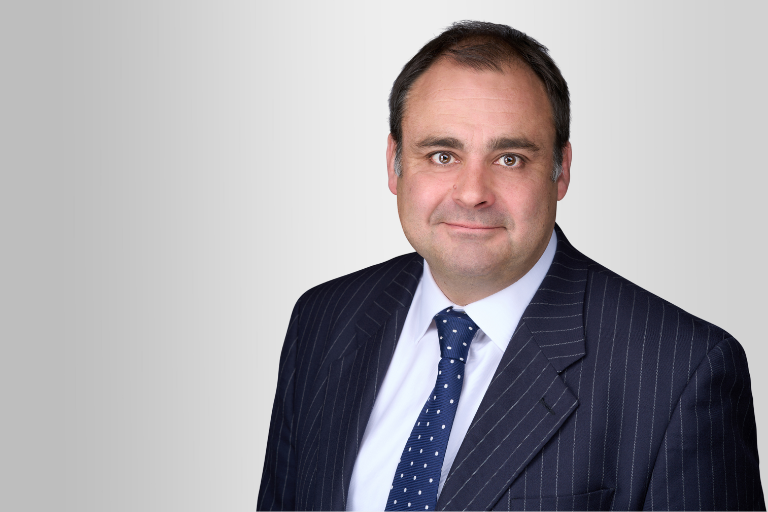Physician Associates – What are they and what are the risks?

Last month the General Medical Council (GMC), the body responsible for regulating doctors, invited registration applications from the associated medical professions of Physician Associates and Anaesthetic Associates.
This represents a broadening of the scope of regulation by the GMC. But what are physician associates and what might be the implications of this move?
What are physician associates?
Physician associates are not doctors. They are dependent medical practitioners. Being described as “dependent”, means that they may not operate in independent clinical practice, but that they must operate under the supervision of a named doctor.
They will not have a conventional medical qualification, but they will have an associated degree such as a degree in anatomy or physiology etc, and will undertake a further two year course qualifying them as a physician associate, following which they may be eligible to be registered with the GMC.
It seems that they are seen as a means of providing additional medical care in the health service through a relatively shorter training process.
What can physician associates do?
Physician associates can work in the hospital setting or may work in the general practice. It is perhaps easier to see how they would operate in the general practice setting as an extra pair of hands working through a patient appointment list alongside a GP, thereby providing easier access to GP appointments.
A physician associate in a GP surgery would see patients that have generally already been triaged by a GP. (Triage is the process of sorting patients by clinical need.)They can be expected to take a medical history, perform medical examination, form an initial working diagnosis or diagnoses and initial management plan for discussion with the GP.
What are physician associates unable to do?
It is important to bear in mind that physician associates are not doctors and thus they are not permitted to prescribe medication or request investigations involving ionising radiation (x-rays and CT scans for example). They can recommend such courses of action, but those recommendations need to be finally authorised by the supervising GP.
There are also certain categories of patients that may not be seen by a physician associate until carefully triaged by a GP. Most notably, they include patient presentations that could be characteristic of serious underlying disease, for example a patient presenting with chest pain or severe abdominal pain.
Supervision requirements of physician associates
As dependent (rather than independent) medical practitioners, the work of a physician associate must be supervised. There are clear and strict supervision guidelines in this respect.
For example, each physician associate in the GP setting must have a named GP supervisor. That GP must themselves be qualified GP. They cannot be a junior GP in training. That GP should be available in person in the surgery at the same time that the physician associate is seeing a patient so that they are readily on hand to review and authorise the clinical plan without delay and where appropriate. It would not be acceptable, for example, for a physician associate to be seeing patients in a GP’s surgery when the supervising GP is absent.
The scope of experience of each physician associate needs to be considered very carefully by the supervising GP to ensure that the range of patients that the physician associate will see is commensurate with his or her experience.
In relation to less experienced physician associates, there is a general expectation that the plan for each patient is reviewed and authorised by the supervising GP immediately after the consultation and before the patient has left the GP surgery. The guidance suggests that where a physician associate is particularly experienced, it may be considered reasonable for that review to happen at the end of the clinic session rather than at the end of the consultation, so that in the event that an alternative management plan needs to be put in place, there has been no significant delay. Should the supervising GP be unavailable, then the recommendation is that the physician associate pauses undertaking further clinical work.
Is there a greater risk of error when a patient sees a physician associate?
Historically, there have been many concerns raised regarding the position of physician associates. The usual argument that is raised is that the physician associate has considerably less training than a qualified GP and thus lacks the experience to avoid missing the serious condition with a subtle presentation. Regular GPs will have had at least five years of training at medical school followed by many subsequent years as a junior doctor before they become qualified GPs. This is in stark contrast to the additional two years’ academic training required after the physician associate’s related degree.
I am old enough to recall such concerns about the introduction of nurse surgeons when I was still in medical practice many years ago. However, in my legal practice, cases arising from failures in care provided by these newer types of associated medical professionals seem to be extremely rare.
I suspect that this may be the consequence of the heavy supervision requirements placed upon doctors who work with or employ physician associates.
The GMC has set out guidance on the process that ought to be undertaken when a GP delegates duties to a physician associate. It also states that if delegation is done properly, the GMC will not consider a GP to be responsible for the actions of that physician associate.
However, the reality is that the management plan formulated by a physician associate must be checked and approved in any event. It would therefore seem that the ultimate responsibility for the care provided by a physician associate remains with the supervising GP.
That view also appears to be expressed by NHS Resolution (the NHS body that deals with medical negligence matters). In the GP setting, where there is a close working link between the physician associate and the GP, NHSR has indicated that claims arising from care provided by physician associates will be covered under the existing clinical negligence scheme for GPs.
Notwithstanding that, a condition of initial registration with the GMC is that a physician associate needs to demonstrate that the individual has adequate and appropriate insurance and indemnity in place.
What next?
Although there appears to be considerable concern voiced in the media regarding medical errors increasing with the introduction of physician associates, when one considers the heavy level of supervision required, one might conclude that such concerns ought to be unfounded.
However, a reason for introducing the physician associate was to take some workload from GPs to free up more appointment slots thereby improving patient access to their doctor. Given the heavy supervision requirements, specifically that each patient’s plan ought to be reviewed by the GP and approved prior to that patient leaving the GP’s surgery, one can see that the aim of reducing the GP’s workload is unlikely to be achieved in any meaningful way. There will inevitably be a pause in activity while the physician associate waits for an opportunity to speak to the GP who will then need to spend a number of minutes considering the particular case and agreeing or revising the proposed management plan. In many cases the GP may need to see the patient themselves as well.
There is of course the additional risk that the GP becomes dependent upon the clinical information obtained by the physician associate when making decisions as the GP may not have seen the patient themselves. We regularly see cases when senior medics have made errors because they have relied on flawed medical information from junior staff.
Given the time pressures of daily practice in a GP surgery, one can see how supervision may slip and that the physician associate’s plans and practice will not be reviewed as anticipated. There have already been cases where this has occurred.
The question, therefore, remains as to the impact that greater use of physician associates will have. There are obvious risks, but there are also guidelines in place to manage those risks. Only time will tell, but with the GMC’s introduction of a specialist register, it would appear that the physician associate is here to stay.
* Disclaimer: The information on the Anthony Gold website is for general information only and reflects the position at the date of publication. It does not constitute legal advice and should not be treated as such. It is provided without any representations or warranties, express or implied.*
No comments